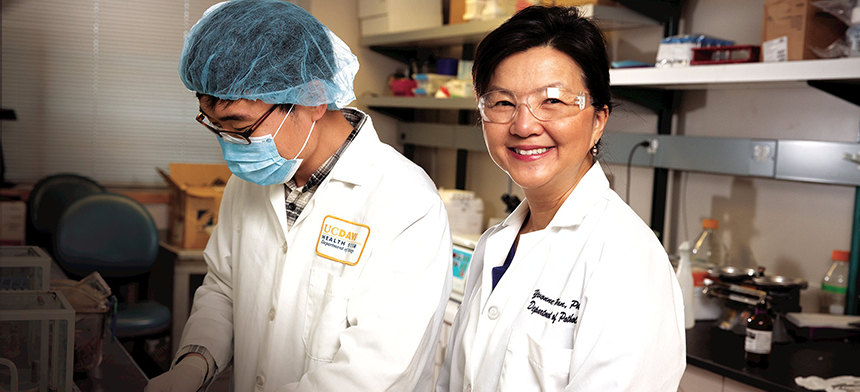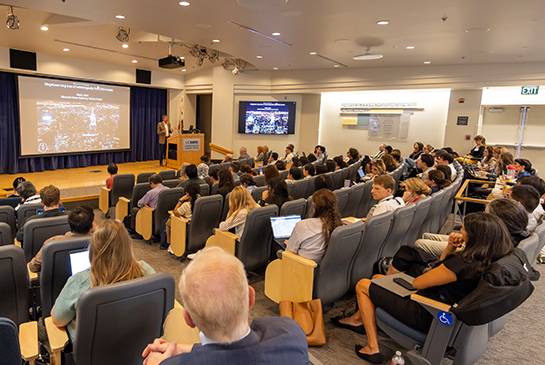Education, Training and Workforce Development
Early Career Faculty

UC Davis faculty members have several opportunities to advance their careers and expand their research interests. Scholars are trained to design and oversee research in team settings, skills critical to a successful career.
-
Paul Calabresi Clinical Oncology K12 Career Development Program
Learn morearrow_forwardCombining key didactic, research and career development components to train independent and productive clinical oncology researchers, the K12 program’s curriculum is guided by two research tracks in basic/translational and clinical science. Faculty-level clinical and translational scientists near the beginning of their investigative careers are mentored in team-based, patient-oriented cancer research.
-
Cancer Leadership Academy
Learn morearrow_forwardIn collaboration with the Office of Community Outreach and Engagement, the Cancer Leadership Academy is an 18-month program designed to prepare aspiring and emerging leaders through expert mentorship, coaching, and hands-on projects.
-
ESI Road to First R01 Workshop
Contact: cancerscholars@health.ucdavis.eduarrow_forwardThis workshop provides essential training and advice to early-stage investigators (ESIs) as they create a plan for their first R01. The three-hour workshop uses lecture and small group facilitated discussion to ensure the cancer center’s ESIs understand the range of funding pathways, the pros and cons of each pathway, and the advantages of applying for an R01 under ESI status. With the expertise of senior faculty, participants receive personalized assistance with their plan considering how their research capacity will expand along a specific career pathway, their steps to move from mentor-dependence to autonomy, and the components and timeline for an R01.
All new ESI Cancer Center Members are invited to participate.
-
Shared Resource Workshop Series
Learn morearrow_forwardCo-developed by UC Davis Comprehensive Cancer Center’s Shared Resources and Office of Education, Training, and Workforce Development, the Shared Resource Workshop Series boosts cancer research productivity by deepening understanding of Shared Resource services; enabling investigators to effectively access Shared Resources; and facilitating multi-directional conversations on Shared Resources’ capabilities, uses and needs.
Workshops in the series were created to provide awareness and hands-on experiences of each of the Shared Resources at the UC Davis Comprehensive Cancer Center. Additional workshops will be added in the future, in the meantime explore the Shared Resources available to investigators.
-
Mini-Sabbatical at Lawrence Livermore National Laboratory (LLNL)
Learn morearrow_forwardTop academic talent from universities across the U.S. spend one to three months at LLNL developing collaborations and exchanging knowledge and best practices. Faculty leverage laboratory resources and capabilities, conduct research and advance their skills. Staff scientists and engineers have an opportunity to collaborate with faculty from around the country on their research programs. Faculty must be sponsored by a LLNL scientist to apply.
Become a cancer center member
Top cancer research and care in Northern California. Bringing together research & treatment.
Learn moreOur Resources
Explore our Resources Page for cancer research opportunities at UC Davis and beyond, with easy access to ongoing offerings.
View resourcesConnect with Us
Subscribe to Cancer Scholars to receive updates on funding, seminars, events open to pre- and post-doctoral and undergraduate scholars.
Subscribe

